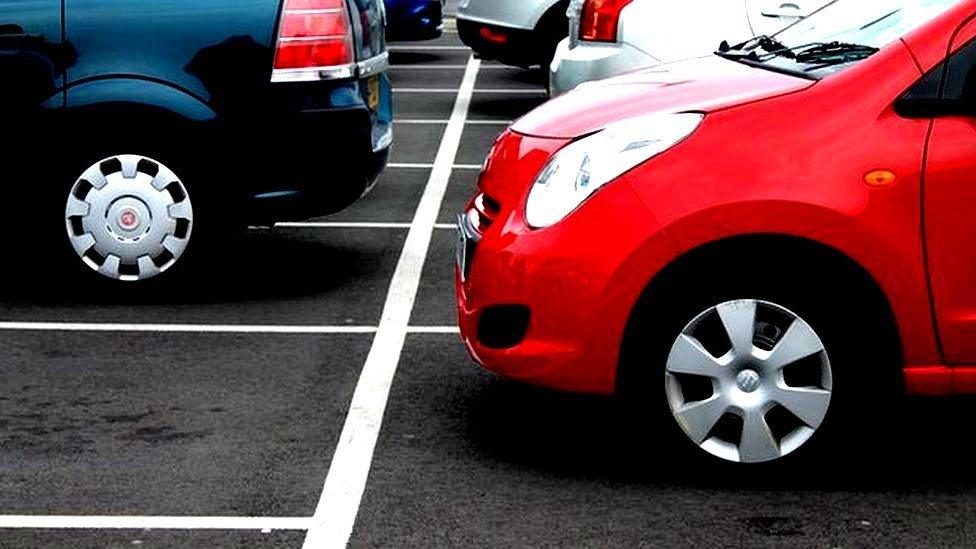Council parking fines cost motorists £21m in Wales
- Published
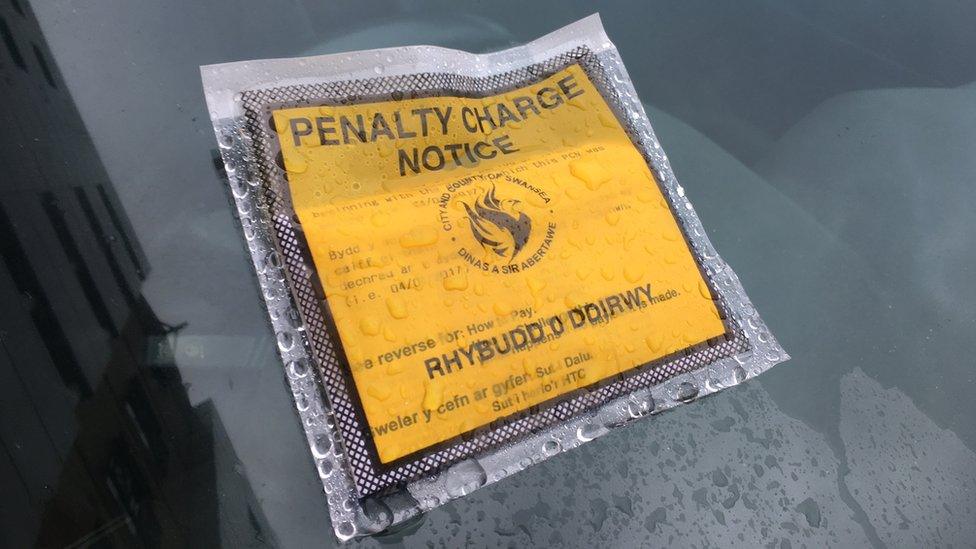
Parking ticket on a car parked on The Strand, Swansea - the most fined street in Wales in 2015/16
Motorists have been fined nearly £21m for breaking parking rules over the last three years.
Welsh councils dished out more than 600,000 tickets to motorists between 2013 and 2016, according to figures obtained by BBC Wales News.
The Strand in Swansea was Wales' top parking fines hotspot with 2,225 issued last year alone.
Tourism experts fear ticketing sends out the message that people visiting by vehicles are "unwelcome".
According to the data obtained under a Freedom of Information Act (FOI), local authorities in Wales collected more than £20.8m from fines in the last three years.
Motorists parking in Cardiff coughed up the largest sum out of Wales' 22 local authorities - paying out £6,249,781 between April 2013 and March 2016.
But a Cardiff Council spokeswoman said the figure were "not surprising" for a capital city.

Streets with the most fines in Wales in 2015-16
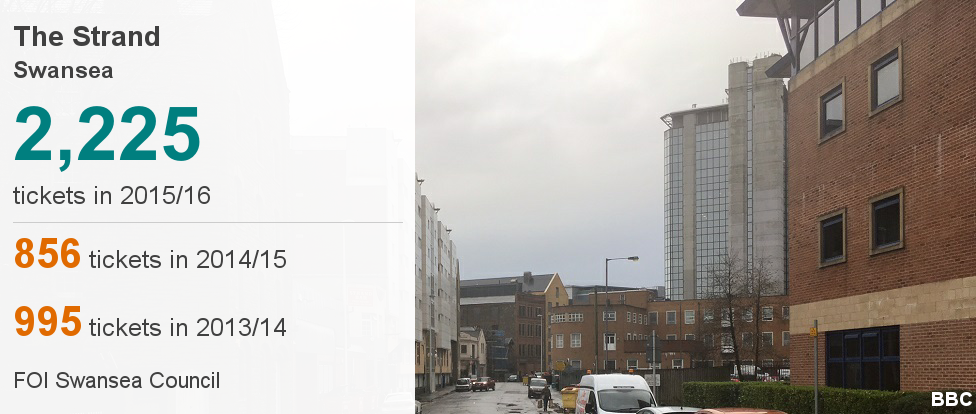
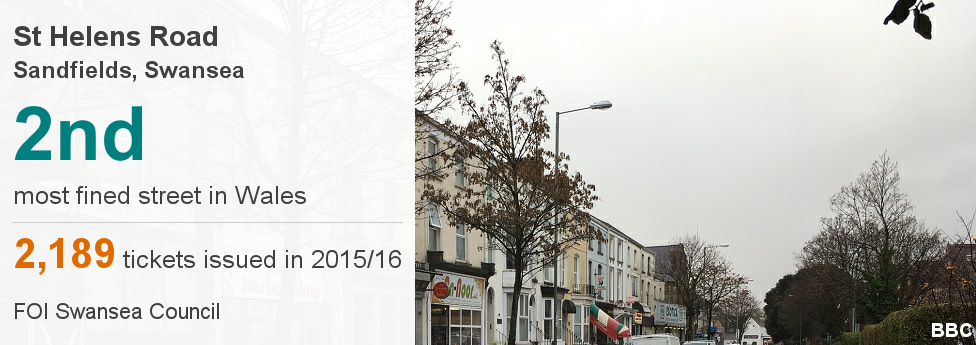
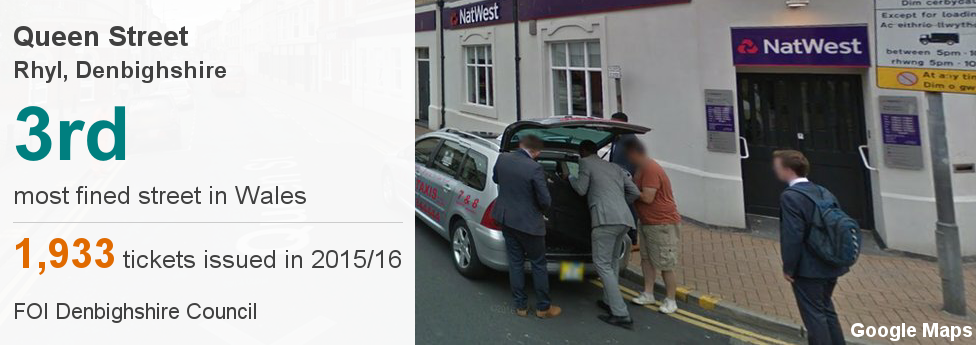
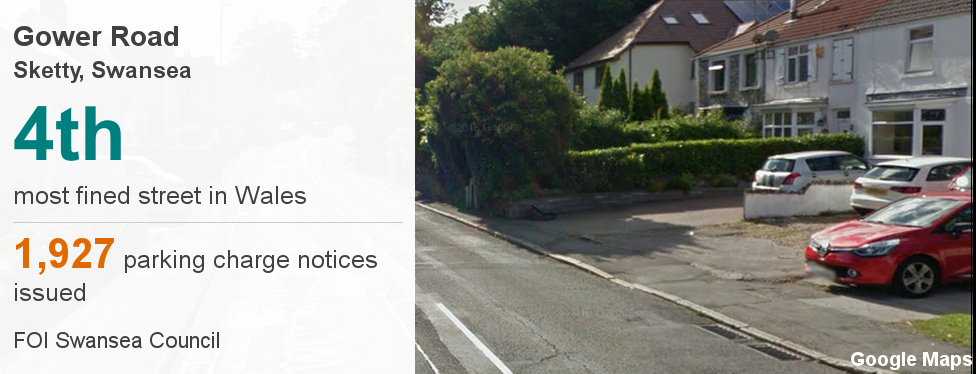
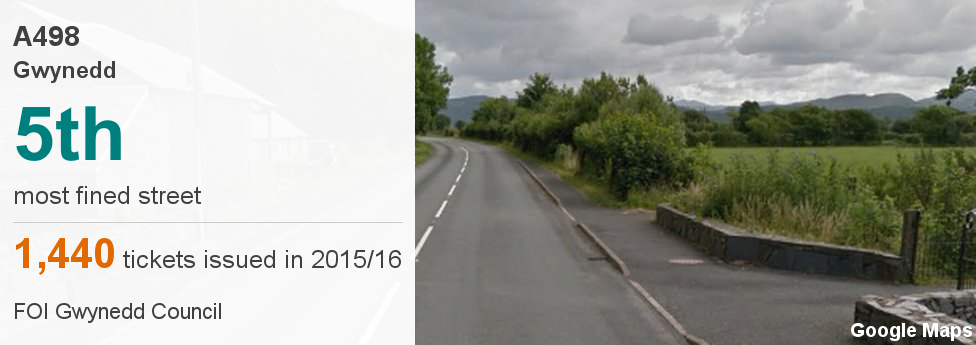
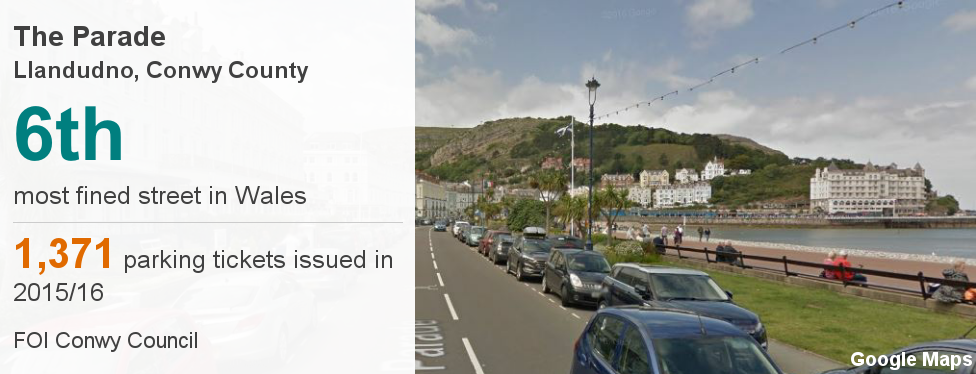
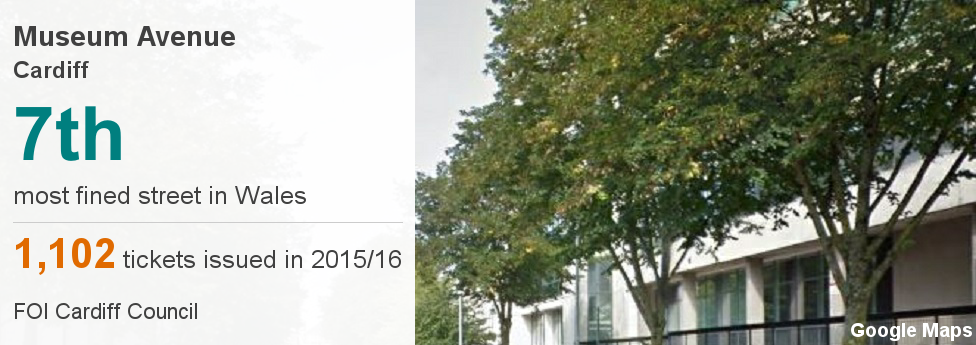
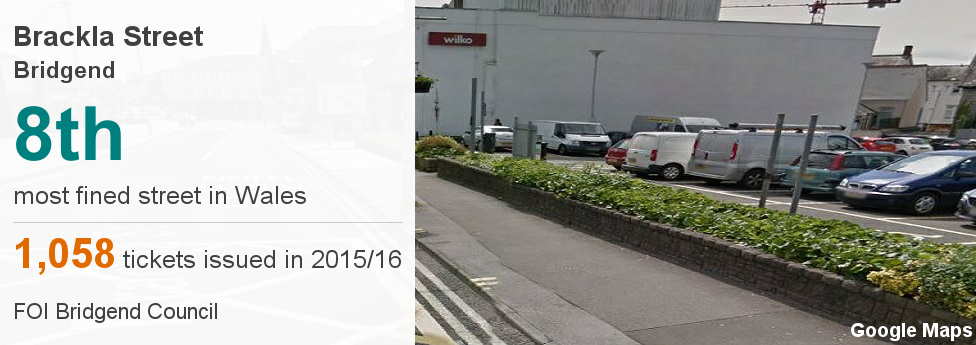
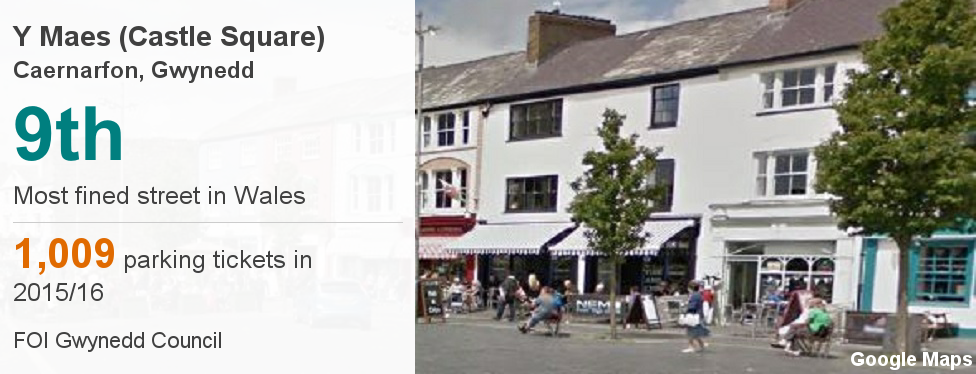
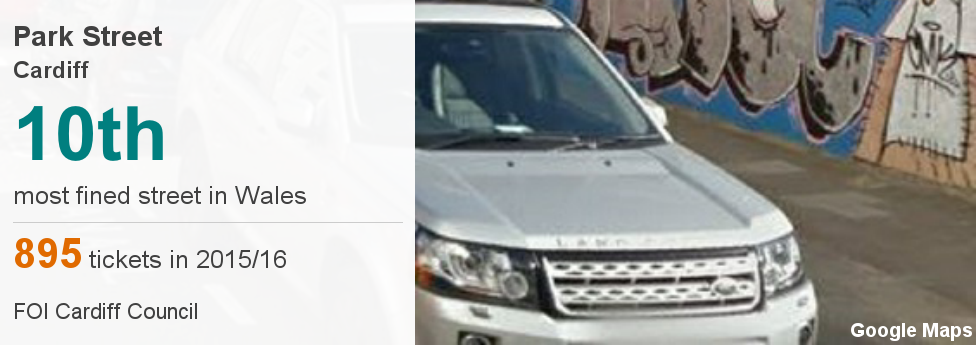

Joshua Browder, a British teenager who created an online "robot" which helps motorists in the UK and USA challenge their parking fines, said tickets were issued "overzealously in Wales".
The amount of cash paid to local authorities in Wales for parking fines increased every year over the three year period, from £6.8m in 2013/14 to £7.1m in 2015/16.
But out of the 642,714 parking charge notices (PCNs) issued by Welsh councils less than 3% were successfully appealed by motorists.
Out of the 22 councils, Rhondda and Newport failed to respond to the FOI request, while Blaenau Gwent and Caerphilly said police were responsible for parking fines in their area.
Mr Browder said: "Over 50% of all parking tickets challenged are dismissed and there are so many rules - correct signage and parking bays of a certain size are just two examples - that must be followed for a ticket to be valid.
"Instead of punishing people for doing wrong, which I believe is fair, they are given to raise money for [local] government.
"These unfair tickets disproportionately target the most vulnerable in society, since the elderly and disabled are most likely to make a small parking mistake."
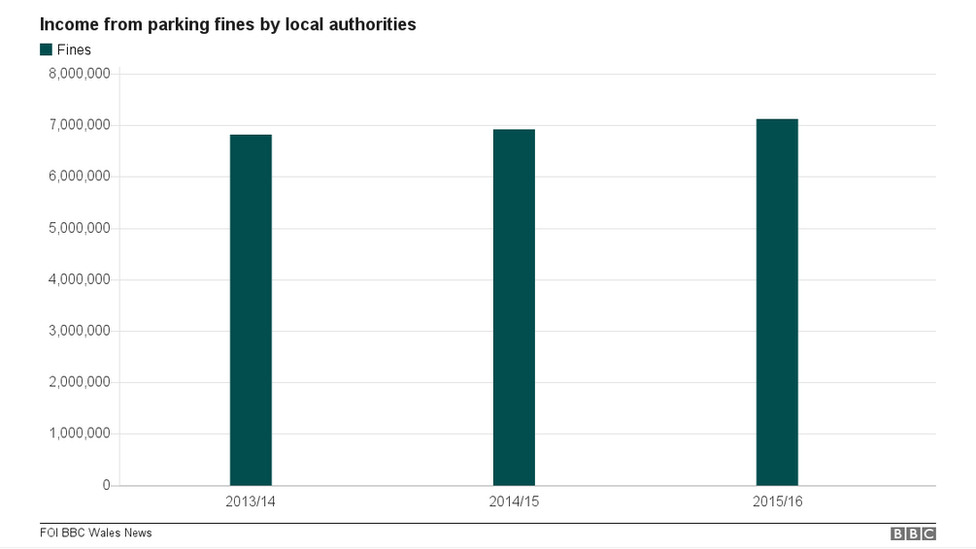
Jim Jones, managing director of North Wales Tourism (NWT), said while quality parking was fundamental to visitor destinations, penalising people meant they may not return.
He said with issues with public transport, councils needed to address the cause of the problem rather than punishing people.
Mr Jones said: "Blanket ticketing all over cars is sending out mixed messages that visitors are not welcome, which has definitely been the case this year, especially when photographs of a stream of cars with yellow parking tickets appear all over social media.
"The answer is quite simple really - clear, easy to understand warning signs that are worded in the correct manner and not threatening," he added.
"It's obvious to me that if cars are continuously parking in areas they shouldn't be for whatever reason, it's highly likely they don't realise they're not allowed to park there, as who in the right mind wants to be fined?"
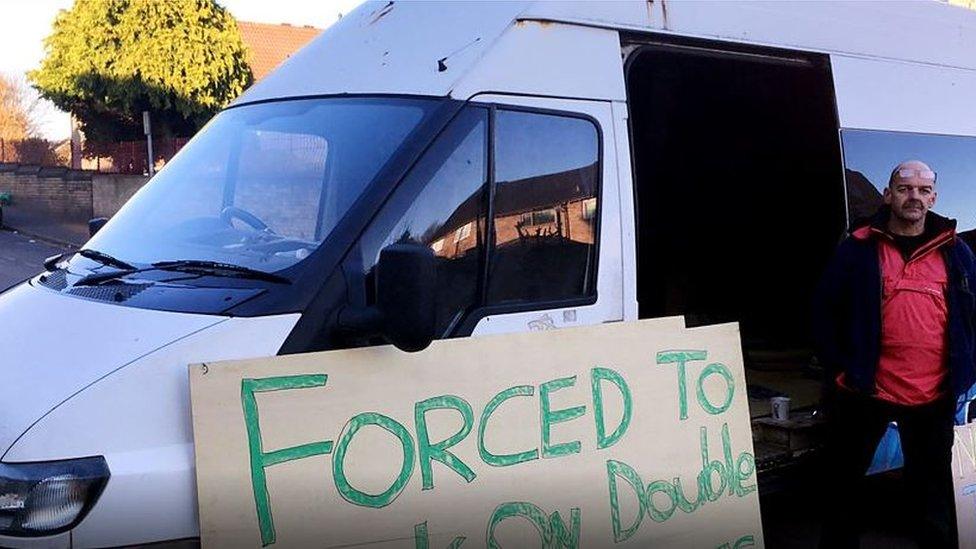
Vincent Crowley protested against residents being fined for parking on double yellow lines
Vincent Crowley, who blocked the entrance to a construction site outside his home in Splott, Cardiff, earlier this year in protest over parking restrictions, had his fine overturned.
He was incensed after residents forced to park on double yellow lines while work was being carried out on Beresford Road bridge were issued with tickets.
"My actions spoke larger than words," he said.
Gwynedd councillor Sion Jones called for a review of public parking across Wales, saying councils should offer a few hours free daily to boost high street footfall.
Wrexham council is providing free parking at its council-run car parks throughout December.
"Online sales are on the rise, whilst the high street needs a helping hand," the councillor said.
"I would like to see more effort made by councils to boost high street trade, and free parking is a good start."
Earlier this year, Mr Jones criticised the local authority for handing out fines to walkers parking on a road in Snowdonia, claiming there were no signs telling them not to park.
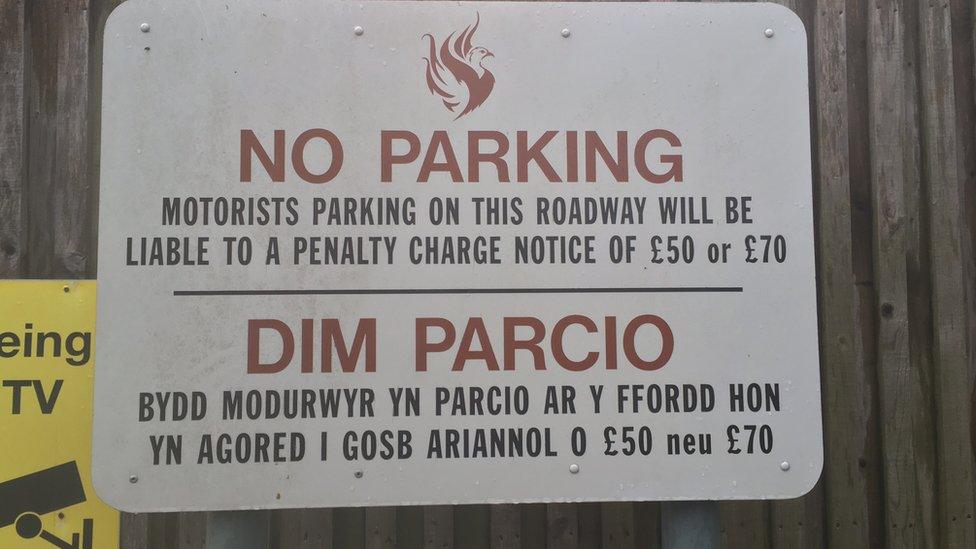
The number of fines issued in The Strand, Swansea has more than doubled in the last two financial years
A Cardiff Council spokeswoman said effective enforcement of parking regulations was "crucial" with around 80,000 commuters and visitors to the city every day.
She said: "Our team of parking enforcement officers ensure people don't park inconsiderately or dangerously so if people want to avoid PCNs, they should abide by parking regulations.
"It's important to note that any revenue raised from issuing PCNs is ring-fenced for the provision and improvements to parking services and public transportation."
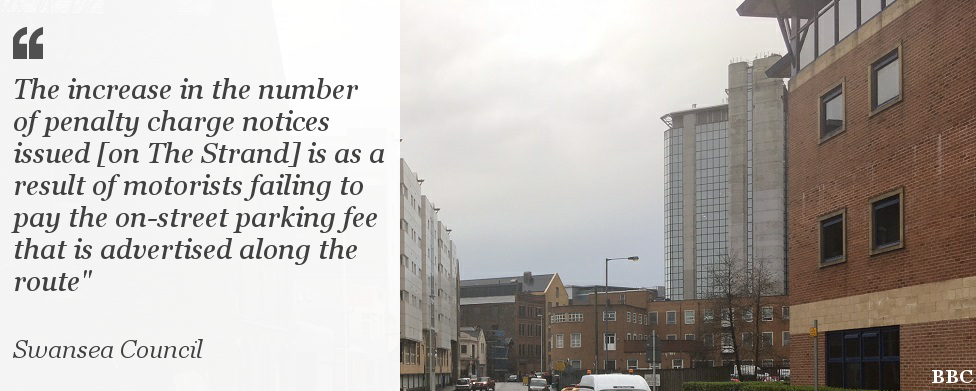
A Swansea Council spokesman said: "We introduced additional parking spaces along the Strand in 2015 to increase short-term city centre parking provision.
"This was introduced after discussions with the Swansea Business Improvement District (BID)."
The group representing councils in Wales, the Welsh Local Government Association (WLGA) said rules meant local authorities had to be spend any profit from the fines on transport.
An FOI by the RAC Foundation revealed Welsh councils made a combined profit of £13.8m from car parking charges and enforcement in 2015/16, after running costs were removed.
Of the 22 councils, 19 made a profit, while three councils lost money on parking - Flintshire (£423,000), Blaenau Gwent (£310,000) and Torfaen (£81,000).
- Published6 August 2016
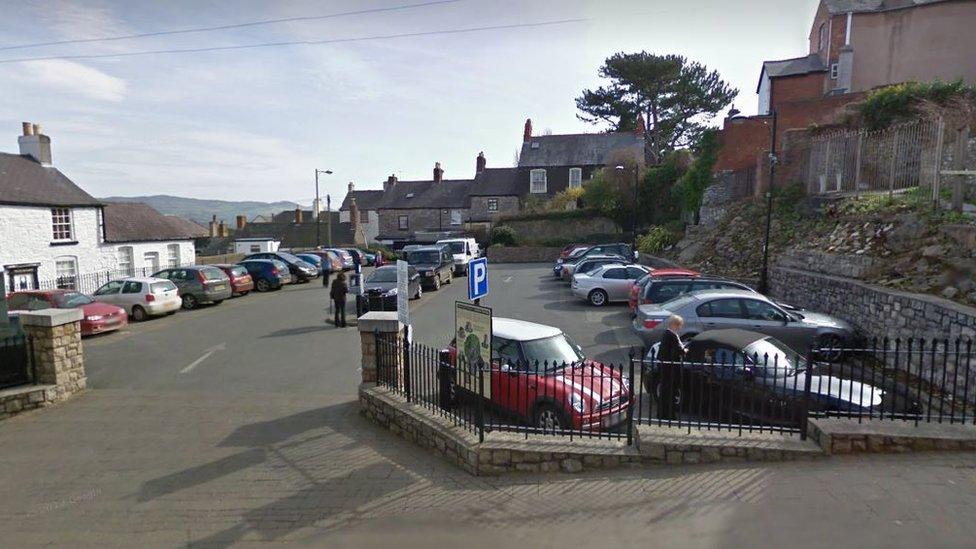
- Published11 October 2013
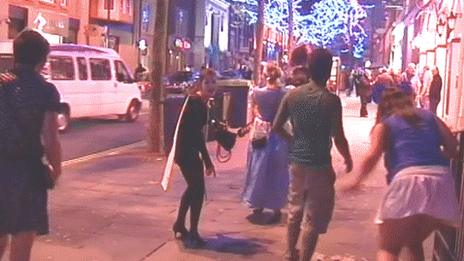
- Published15 October 2016
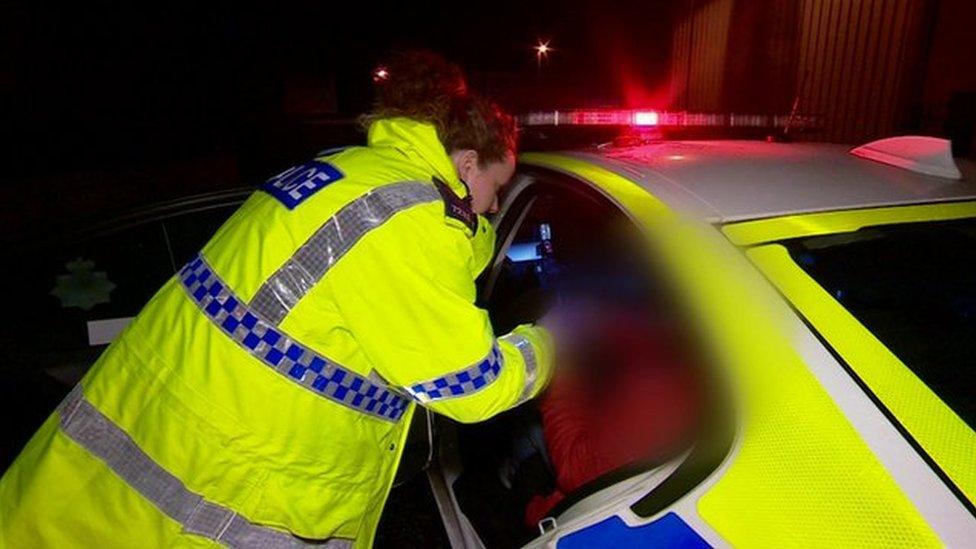
- Published16 August 2013
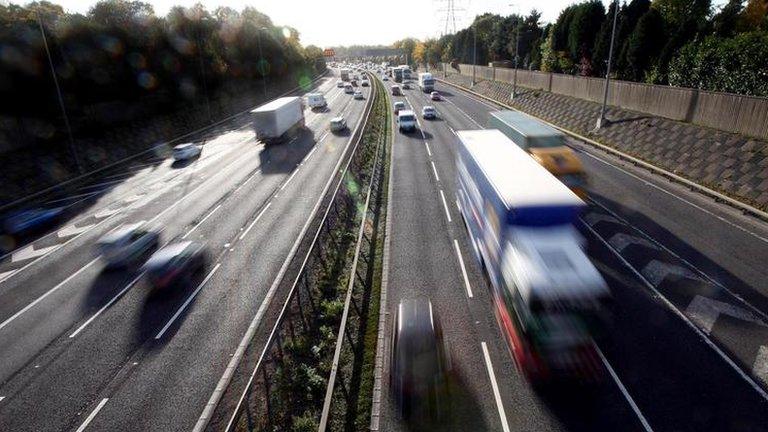
- Published5 October 2016
